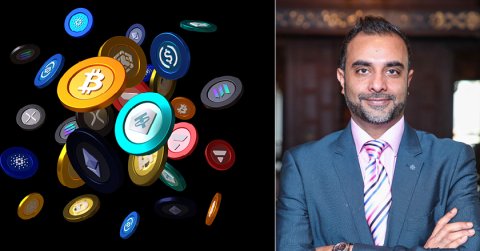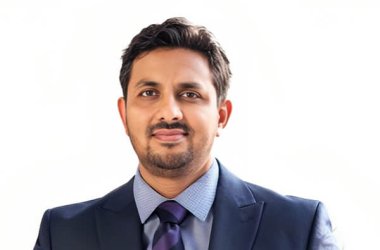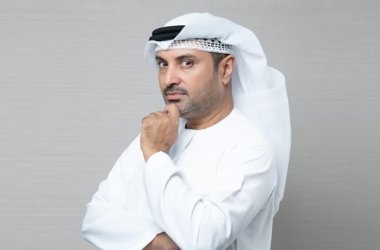
The UAE has established itself as a global crypto hub, and as the price of BTC surpassed $100,000 last week, investors have become more bullish in the region. What factors have contributed to this optimism and success, and how can other GCC countries follow suit? The UAE’s success comes from a mix of clear regulations, strong infrastructure, and a willingness to engage with global businesses, explains Khurram Shroff, CEO of iMining Technologies and an advisor to 3iQ, the world’s first Bitcoin ETF.
Recognized among the “Top 100 Most Powerful and Influential Muslims in Great Britain and the World” by Power100, Khurram is a visionary leader and speaker with deep expertise in blockchain, cryptocurrency, and emerging technologies.
Initiatives like the Virtual Asset Regulatory Authority (VARA) and regulatory sandboxes at ADGM and DIFC have created a secure environment for businesses to experiment and grow.
For other GCC countries to replicate this success, they must adopt similar frameworks that prioritize collaboration and adaptability while ensuring compliance with international standards, points out Khurram.
An early Bitcoin adopter since 2011, Khurram has consistently championed the transformative potential of blockchain and cryptocurrency to foster financial inclusion and economic growth. His significant contributions span across artificial intelligence, data centers, fintech, and cybersecurity, establishing him as a leading authority on the intersection of technology and finance. Widely known as the “Arab Whale” in the cryptocurrency community, Khurram continues to be a driving force in advancing innovative technologies on a global scale.
In an exclusive interview with tahawultech.com, Khurram explained how Bitcoin can become a key piece of a much larger ecosystem, driving practical, everyday benefits
Interview excerpts:
Bitcoin adoption is growing across the Middle East. What unique challenges and opportunities does the region present for its widespread use?Bitcoin has clear opportunities in the Middle East, especially for remittances and financial inclusion. Many people here rely on cross-border payments. The region’s large expat population stands to benefit significantly. The challenge lies in simplifying access and building trust among users unfamiliar with cryptocurrency. The region’s ongoing efforts in financial innovation could mean that Bitcoin can become a key piece of a much larger ecosystem, driving practical, everyday benefits.
BTCfi (Bitcoin DeFi) has been making waves. How can it address financial inclusion in regions like North Africa and underserved parts of the GCC?
BTCfi can open up financial services where traditional options are limited. In North Africa, it can improve access to credit and savings tools for individuals and small businesses. In the GCC, it offers opportunities for entrepreneurs to access funding without needing conventional banking relationships. The key is making these platforms accessible and culturally relevant. Financial inclusion is about making sure people trust and understand the tools available to them.
How do cultural attitudes in the Middle East shape the way cryptocurrency is perceived and adopted?
Trust and community are important in the Middle East, and these values influence how people view cryptocurrency. Government-backed initiatives and clear regulations have helped build confidence, especially in markets like the UAE. Educating users about the practical benefits of cryptocurrency is essential for wider acceptance.
How do you see blockchain playing a role in the Middle East’s push for digital transformation under initiatives like Vision 2030?
Blockchain fits naturally into the Middle East’s vision for economic diversification and technological growth. It brings clear benefits in areas like transparency, efficiency, and trust, particularly in sectors like logistics, finance, and government services. Countries in the region, especially the UAE and Saudi Arabia, are taking proactive steps to explore its potential. Blockchain isn’t just theoretical here; it’s being integrated into real projects that could set a foundation for broader adoption.
The UAE is leading the charge in AI and blockchain integration. What opportunities do you see for these technologies to converge in the region?AI and blockchain together offer a lot of possibilities. AI helps make sense of complex data, and blockchain ensures that data is secure and verifiable. In the UAE, we’re seeing this convergence being explored in areas like healthcare, where AI-driven insights can be combined with blockchain to protect patient data. What’s exciting in the UAE is that the infrastructure to support such convergence – like the Dubai AI Innovation Hub – exists, which accelerates progress.
With renewable energy investments rising in the GCC, can the Middle East become a hub for sustainable Bitcoin mining?
It’s a realistic possibility. The GCC’s renewable energy infrastructure, particularly in solar, provides a stable and scalable solution to Bitcoin mining’s energy demands. Initiatives are actively exploring how to integrate clean energy into mining operations. Sustainable mining isn’t just good for the environment, it also positions the GCC as a leader in responsible innovation, which could attract global players looking for greener solutions.
How do you think Middle Eastern regulators can balance fostering innovation in blockchain with ensuring financial stability?
Regulation here has matured in ways that encourage innovation without compromising stability. Take the UAE’s sandbox initiatives, for example – they provide startups room to innovate under regulatory oversight. This creates a controlled space for testing while ensuring that risks don’t spill over into the broader economy. Financial stability isn’t about holding back innovation, it’s about understanding where the risks lie and mitigating them through clear guidelines. In this region, there’s also a strong tradition of collaboration between regulators and businesses, which ensures that policies are informed by real-world use cases.
What advice would you give to young entrepreneurs in the region looking to enter the blockchain and cryptocurrency space?
Understand the problem you’re solving, not just the technology you’re using. Blockchain can’t be a hammer for every nail – it works best when addressing inefficiencies in trust, transparency, or cost. For entrepreneurs, the Middle East is a fertile ground for blockchain in sectors like cross-border payments. Collaborate with regulators early, as compliance is an enabler of credibility. Finally, build networks with other innovators – the strength of this space lies in its community.





